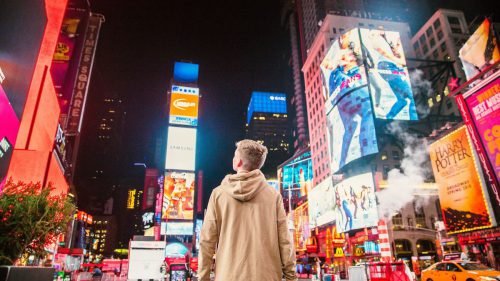

BreakPoint
No More Retreat
America is in the middle of its quadrennial ritual: the presidential campaign. The democratic experiment at its best (and its noisiest). And that makes this a good time to stop and reflect on what the Bible teaches about politics and government. What is the right relationship between church and state? Should Christians vote only for other Christians? Is there ever a time Christians should disobey the government? Over the next few days here on BreakPoint I'll be dealing with some of these tough questions. If you think back, there was a time when Christians didn't even have to ask such questions. They knew they had a civic duty to help shape the country's political life. After all, the first settlers to our shores were Christian groups seeking religious sanctuary. And right up through the last century the public ethos in America was strongly Christian. But then came a series of intellectual shocks that Began to undermine that Christian influence. In theology there was so-called Higher Criticism, with its cut-and-paste approach to the Bible that simply gets rid of anything people find questionable. In anthropology, there was cultural relativism--the idea that each society has its own truth. People began to question Christianity's claim to be universal truth. In science, there was the theory of evolution, which seemed to push God out of biology--and out of all the sciences. In psychology there was Sigmund Freud saying Christianity was just a crutch for weak people. In every field, Christian truth was challenged, Christians were put on the defensive. Some Christians responded by giving up the Gospel and substituting social activism. Other Christians responded by going into retreat. To preserve the historic, orthodox faith, they turned inward and focused on tending their churches, seminaries, and Bible schools. Under the circumstances that strategy may have been the only way to keep the faith alive. But when Orthodox Christians turned inward, they left the public arena open to non-Christians and secularists. As a result, the Christian ethos that once permeated the public sphere was rapidly eroded. Over time, even those Christian enclaves--churches and seminaries--were invaded by secularism. That's when Christians began to realize they could no longer retreat. The time had come to take the offensive--to be salt in all structures of society, to extend the Lordship of Christ into all of life. Including politics. So about a decade ago, Christians began coming out of their spiritual ghettos. And that's a good thing. Christians ought to be exercising their civic duty to vote, to be informed, to bring Christian truth to bear in the political arena. Augustine put it well when he said Christians have a dual citizenship: We are citizens of both the heavenly kingdom and an earthly kingdom. And because we are inspired by heaven, Augustine said, we should make the best citizens here on earth. Over the next several days, I invite you to join me here on BreakPoint--as we explore together what it means to live faithfully in both kingdoms.
09/8/92















